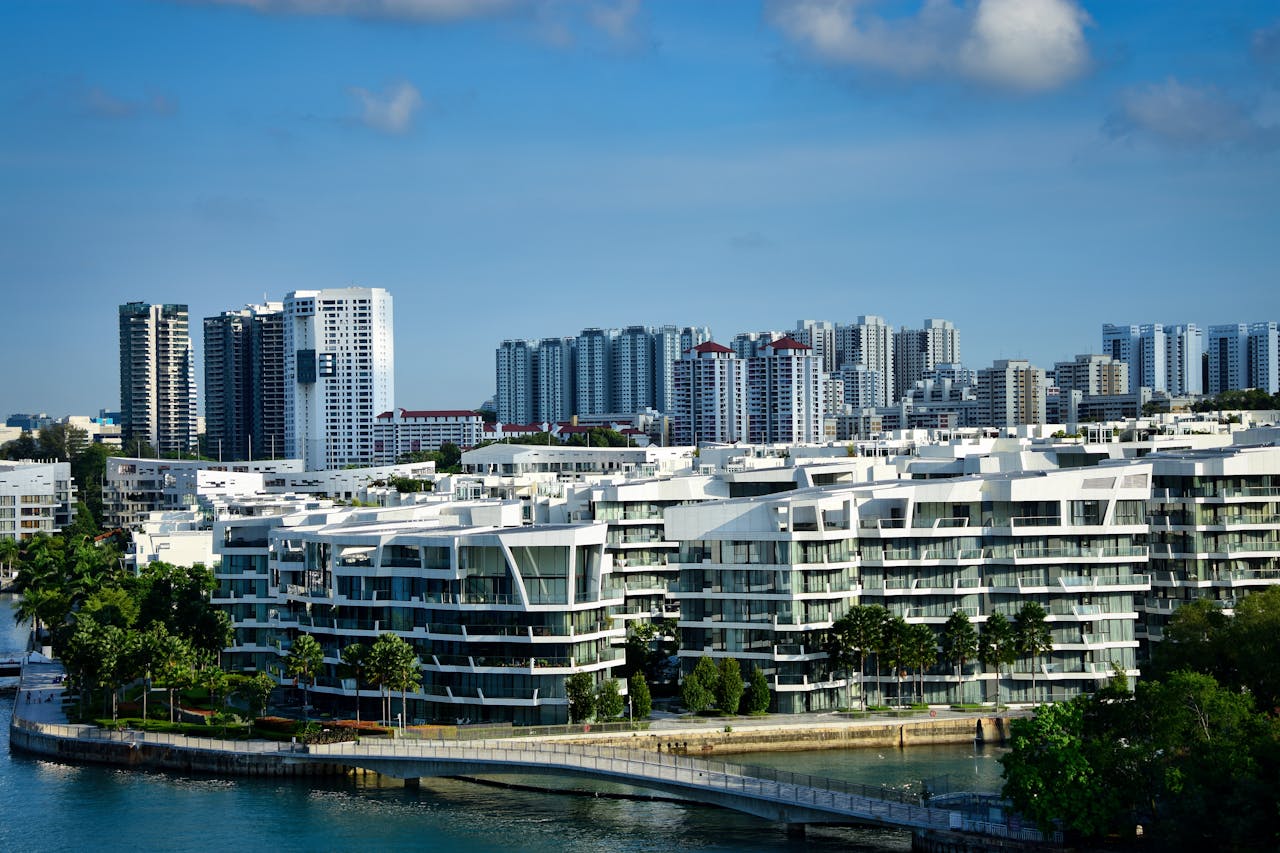SINGAPORE: In a recent warning, real estate expert Christine Sun, chief researcher & strategist at OrangeTee Group, has cautioned homebuyers to be vigilant, suggesting that some may be overpaying for their million-dollar homes.
Sun highlighted in a report published by the Singapore Business Review that the current market trends show that buyers are paying significant premiums for flats that are on lower floors, smaller in size, or located further from the city centre. She emphasized the importance of exercising prudence to avoid overpaying in a market where prices are persistently high.
This advice comes amidst a notable increase in million-dollar flats in non-mature estates. The percentage of such flats has surged to 9.1% of all units sold in the first nine months of 2024, up from just 4.3% in the same period in 2022.
The trend is not limited to specific types of flats; even lower-floor million-dollar flats, those situated at the 12th-storey or below, have seen a rise to 42.2% of all flats sold, compared to 34.7% in 2022.
Four-room million-dollar flats have also seen a dramatic increase, making up 33.9% of all four-room flats sold from January to September 2024, a significant jump from the 9% recorded in 2022.
Lee Sze Teck, senior director of data analytics at Huttons Asia, predicts that the number of million-dollar flats could exceed 1,000 by the end of 2024, accounting for 3% to 4% of the total market volume. He noted that the number of million-dollar flats hit a record high of 328 in Q3 alone.
Areas with a high proportion of million-dollar flats include Bishan, Bukit Merah, Bukit Timah, the Central Area, Kallang/Whampoa, Queenstown, and Toa Payoh.
Looking ahead to Q4, Sun anticipates that while HDB resale volumes might dip slightly, more units could be sold at higher prices. She also pointed out that resale flats near future Prime Location Housing (PLH) and Plus flat sites could command higher prices, as some buyers might prefer resale units with shorter Minimum Occupation Periods (MOP) and less stringent selling criteria.
Looking ahead
Despite the cooling measures, Lee expects demand for HDB resale flats to remain strong throughout 2024. He believes that lower interest rates will lead to reduced borrowing costs and higher loan quantum for buyers, potentially driving up prices in the coming months.
In the coming months, the Singapore real estate market is expected to evolve with a mix of trends that will have varying implications for homebuyers.
For prospective homebuyers, this means that the cost of entering the property market could be higher than anticipated. The competition for desirable properties, especially those in prime locations or near upcoming developments, is likely to intensify. This could lead to situations where buyers may overpay for homes that, under normal circumstances, would not warrant such high prices.
However, some factors could mitigate the impact of rising prices. The recent cut in interest rates is expected to lower borrowing costs and increase the loan quantum for buyers. This could make it more affordable for some homebuyers to consider properties in better locations, potentially leading to a rise in prices in the coming months.
Strategies to avoid overpaying for properties
Prospective Singaporean homebuyers can employ several strategies to avoid overpaying for their properties:
Research and compare prices – Buyers should research the current market prices for similar properties in the area they are interested in. This includes looking at recent sales data and valuations to understand the fair market value of the property they are considering.
Avoid cash over valuation (COV) – COV refers to paying more than the valuation of a property. While it’s difficult to completely avoid COV due to high demand, buyers can try to negotiate with sellers to ensure the price is as close to the valuation as possible. This can involve thorough research and possibly seeking professional advice to understand the property’s true value.
Consider location and unit type – Avoid overpaying for properties that are not in prime locations or are smaller units. Buyers should consider the long-term benefits and potential resale value of the property rather than just the immediate appeal of a lower floor or smaller size.
Explore alternative financing options – With the recent cut in interest rates, buyers can explore different financing options that might offer lower borrowing costs. This could include comparing different banks and financial institutions for the best loan terms.
Stay informed about market trends – Keeping abreast of market trends and government policies can help buyers make informed decisions. For instance, understanding the impact of cooling measures and changes in loan-to-value (LTV) ratios can influence when and how much to spend on a property.
Consult with professionals – Engaging a real estate agent or a property consultant can provide valuable insights and help negotiate better deals. Professionals can also offer advice on the best time to buy and the types of properties that are likely to be appreciated.
By implementing these strategies, prospective homebuyers in Singapore can make more informed decisions and potentially avoid overpaying for their properties.

